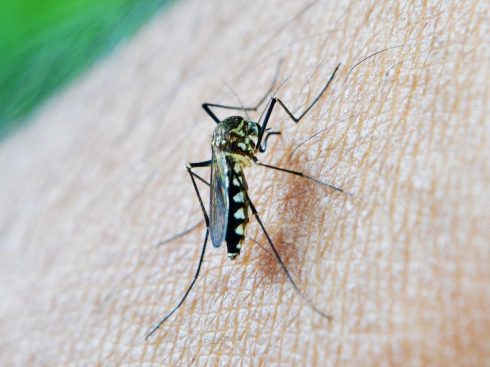MORE than 100 cases of Malaria were detected in Andalucia last year, official figures have revealed.
The southernmost region is at risk of seeing a surge in such insect-borne diseases amid a rise in temperatures caused by global warming.
This year, for example, has seen mosquitos arrive months earlier than usual due to the ideal combination of humidity caused by recent rains and high temperatures.
Figures from the Junta this week show there were a total of 101 registered malaria cases in 2023, plus 47 dengue fever infections and 76 cases of leishmaniasis.
READ MORE: How eating pistachios daily can improve brain function and memory

There were also multiple cases of west Nile virus last year – while at least two have been confirmed so far this year.
These diseases caused three deaths in Andalucia in 2023; An 81-year-old man who died of leishmanasis, a 68-year-old woman who died of malaria and an 84-year-old woman who died of west Nile fever.
In response, Andaluica has launched a special ‘surveillance and control’ team – dubbed PEVA – that will monitor insect arrivals in the region and advise on how to stop such diseases from growing.
PEVA said: “Andalusia is a large territory, with a very dispersed population, a great variety and richness of ecosystems and a geographical location that constitutes a natural border with third countries, making it prone to insects transmitting diseases, as well as being sensitive to climate change.”
Head researcher at the Doñana Biological Station, Jordi Figuerola, told Malaga Hoy that malaria cases are nothing new in Spain, counting around 800 per year.
He explained that these are ‘imported cases of travellers returning from areas where these types of insects spread these diseases, since it is very difficult for the circumstances to occur for it to be transmitted to other people, but it can happen.’


He added: “For example, in Catalunya there were recently two cases of dengue in people who had not travelled.
“Right now, South America is experiencing a greater number of dengue cases and it is more than foreseeable that they will reach our country.”
He also said there has been a ‘significant’ outbreak of dengue fever in Madeira that could reach Gran Canaria ‘and are beginning to be seen in the capital.’
Figuerola said the increasing mobility of people and the rise in global temperatures will only ‘favour’ an increase in cases.
So how do you keep yourself safe?
Avoid leaving containers with water or liquid outside on your balcony, as that is where mosquitos like to reproduce.
Any puddles of pools of water should be removed. Piles of damp clothes or towels left outside can also attract mozzies.
Town halls should also focus on fumigating drains and other areas where the pests are known to gather, says Figuerola.








